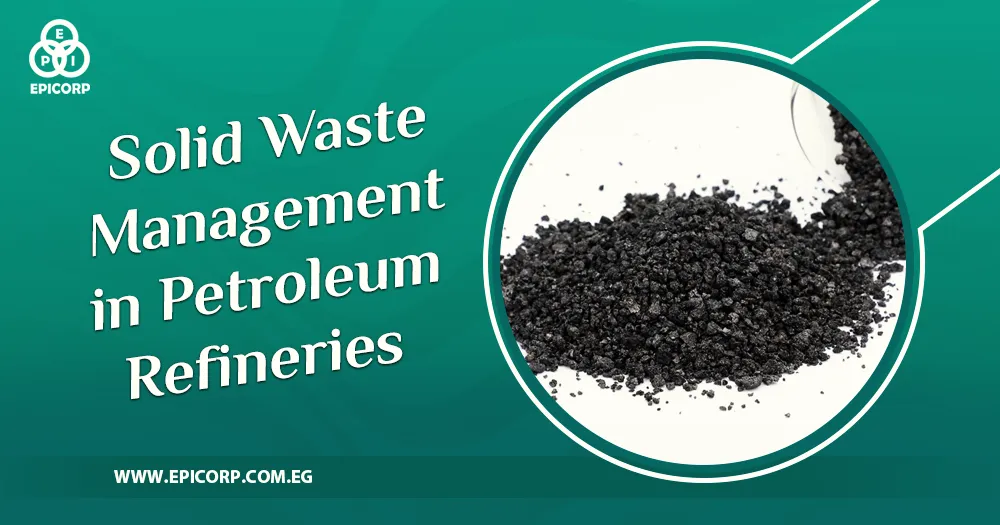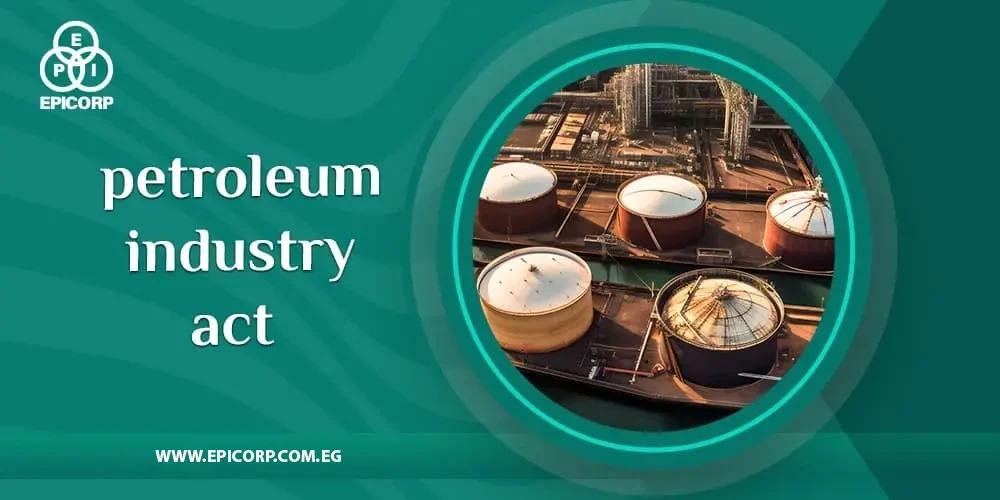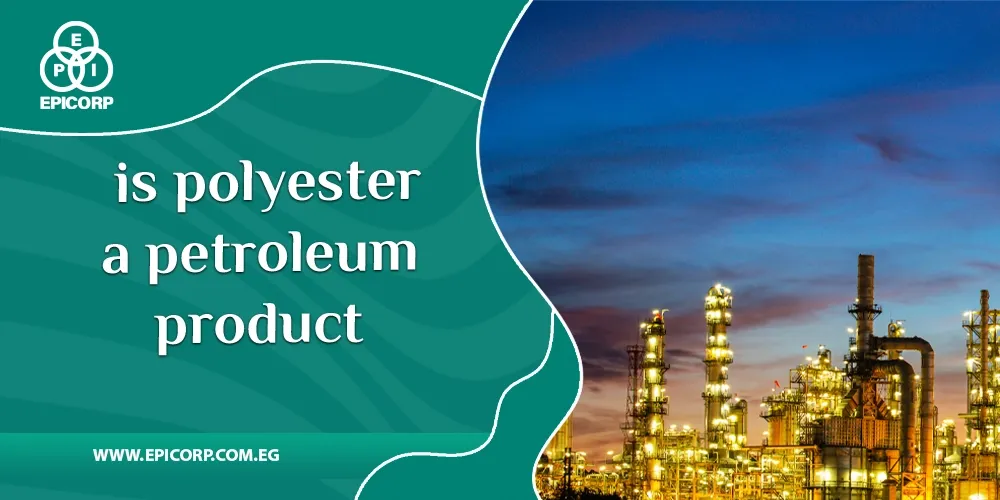solid waste management in petroleum refineries is a critical aspect of environmental stewardship within the oil and gas industry. Refineries generate various types of solid waste, including catalysts, spent catalysts, sludges, and other by-products, posing challenges for disposal and environmental impact. Efficient and responsible solid waste management strategies are essential to minimize environmental consequences, comply with regulations, and contribute to sustainable practices in the refining sector. This introduction sets the stage for exploring the intricacies and importance of solid waste management in petroleum refineries.
Table of Contents
ToggleWhat are the waste generated from petroleum refinery?
solid waste management in petroleum refineries generate various types of waste, including:
- Spent Catalysts: Used in refining processes, these catalysts become deactivated and are considered waste.
- Sludges: Residual materials that accumulate during different refining steps, often containing contaminants.
- Sulfur Compounds: Extracted during refining processes to meet environmental standards, sulfur becomes a waste byproduct.
- Wastewater: Generated from various refining activities and may contain contaminants, necessitating treatment before discharge.
- Solid Residues: Residues from distillation and other processes that are not further processed.
- Emissions: Gaseous byproducts released during refining, which can contribute to air pollution if not properly controlled.
Read also: Petroleum Industry Definition.
Solid waste management in petroleum refineries
solid waste management in petroleum refineries is a critical aspect of environmental responsibility and regulatory compliance. Refineries generate diverse solid wastes, including spent catalysts, sludges, and residues, posing environmental challenges. Effective management involves:
- Waste Minimization: Implementing processes to reduce the generation of solid waste during refining operations.
- Recycling: Exploring opportunities to recycle certain waste materials, such as spent catalysts or metal residues, to minimize environmental impact.
- Treatment: Employing appropriate treatment methods for solid wastes to mitigate potential environmental hazards and facilitate safe disposal.
- Safe Disposal: Ensuring proper disposal of non-recyclable waste in compliance with environmental regulations to prevent soil and water contamination.
- Regulatory Compliance: Adhering to local and international regulations governing the handling, transport, and disposal of solid wastes from petroleum refining.
Get to know: What Is Petroleum Energy
What is the treatment process of oil refinery waste?
The treatment process of solid waste management in petroleum refineries involves various techniques to mitigate environmental impact and comply with regulations. Key treatment methods include:
1. Separation and Sedimentation:
Separating solid particles and sediments from liquid waste through settling tanks or centrifuges.
2. Biological Treatment:
Using microorganisms to break down organic components in wastewater, reducing its environmental impact.
3. Chemical Treatment:
Employing chemicals to neutralize or precipitate contaminants, making them easier to separate from the waste.
4. Filtration:
Passing waste through filters to remove suspended solids and impurities.
Read also: Oil Refinery Waste Products.
5. Adsorption:
Using materials like activated carbon to adsorb impurities from the waste stream.
6. Dewatering:
Removing excess water from sludges to reduce volume and facilitate further handling.
7. Thermal Treatment:
Employing processes like incineration to reduce the volume of solid waste and destroy hazardous components.
8. Membrane Technologies:
solid waste management in petroleum refineries utilizing membranes for filtration and separation processes to purify wastewater.
Hers’s: What Are The 10 Uses Of Petroleum.
What is 7 principles of solid waste management?
The solid waste management in petroleum refineries provide a framework for effective waste management practices. These principles, often referred to as the hierarchy of waste management, prioritize actions to minimize environmental impact. The principles are:
- Prevention: Minimize waste generation by promoting practices that reduce the production of waste at the source.
- Minimization: Reduce the quantity and toxicity of generated waste through source reduction and environmentally conscious practices.
- Reuse: Encourage the reuse of products and materials to extend their lifespan, reducing the need for new resources.
- Recycling: Promote the recycling of materials to divert them from landfills and conserve resources.
- Energy Recovery: Utilize waste as a resource for energy generation through methods like incineration with energy recovery.
- Treatment: Employ appropriate treatment methods to manage and neutralize hazardous components in waste.
- Disposal: As a last resort, safely dispose of residual waste in a controlled and environmentally sound manner, following regulatory guidelines.
Read also: Petroleum Refinery In Modern Times.
conclusion
In conclusion, according to EPICORP, effective solid waste management in petroleum refineries is pivotal for achieving sustainable and responsible industry practices. Addressing the challenges posed by diverse waste streams, such as spent catalysts and sludges, is not only a regulatory necessity but also a fundamental commitment to environmental protection. By implementing efficient waste disposal methods, recycling initiatives.
And continuous improvement in waste reduction, refineries can play a crucial role in mitigating environmental impact. A comprehensive approach to solid waste management in petroleum refineries not only fosters compliance but also reflects a commitment to environmental stewardship, promoting a more sustainable future for the petroleum refining industry.
FAQ
What do petroleum refineries do?
solid waste management in petroleum refineries plays a crucial role in processing crude oil into various valuable products. This refining process involves separating and converting different hydrocarbons present in crude oil into refined products like gasoline, diesel, jet fuel, lubricants, and various petrochemicals. Refineries employ complex systems of distillation, cracking, reforming, and other processes to achieve this transformation. Additionally, refineries focus on meeting stringent quality standards, adhering to environmental regulations, and implementing safety measures throughout the production cycle.
What is the main process in refinery?
The main process in a solid waste management in petroleum refineries is crude oil distillation. During this process, crude oil is heated in a distillation column, and its components are separated based on their boiling points. This results in the production of various fractions such as naphtha, kerosene, diesel, and heavy residual oil. These fractions then undergo further refining processes like cracking, reforming, and treatment to produce specific end-products like gasoline, diesel fuel, jet fuel, lubricants, and petrochemicals. Crude oil distillation serves as the foundational step in the refining sequence, enabling the isolation of different hydrocarbons for subsequent processing into valuable products.



